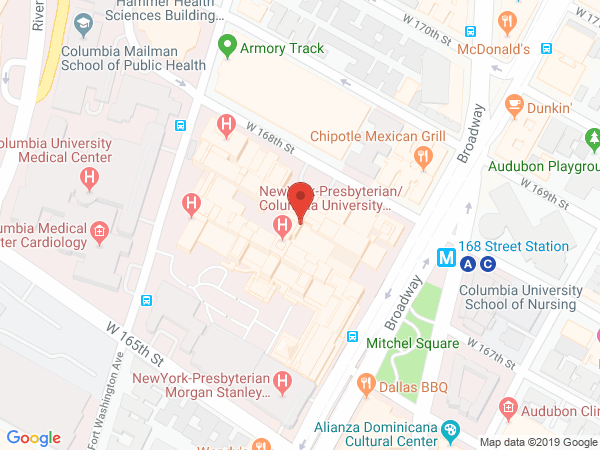Harms Lab
Location and Contact Information
Research in the Harms Lab is focused on harnessing emerging genetic technologies to understand the causes of inherited neuromuscular diseases—particularly motor neuron disorders—including amyotrophic lateral sclerosis (ALS), SMA, and hereditary motor neuropathies. Our focus is to identify and model genes causing inherited neuromuscular diseases. We identified DYNC1H1 and FBXO38 as causative factors in dominant spinal muscular atrophy and DNAJB6 in limb-girdle muscular dystrophy. In ALS, we have identified a rare variant in the TREM2 gene that doubles the risk of developing sporadic amyotrophic lateral sclerosis. We are now exploring genetic influences on C9ORF72 ALS disease phenotypes. We are working to understand the prevalence, expansion characteristics and mechanisms of C9ORF72-related ALS.
The Harms Lab serves as the core for repeat expansion sizing to facilitate the understanding of disease mechanisms and potential routes to therapeutic intervention. Dr. Harms directed the clinical phenotyping effort of a large collaboration that identified TBK1 as a novel ALS gene and highlighted several candidate genes for further studies. These genetic discoveries will enable the generation of cellular and animal models to study mechanisms of pathogenesis in addition to advancing the development of better therapeutics.
Current Projects
- Genomic translation for ALS care (GTAC)
- Next-generation sequencing approaches for novel gene discovery in ALS
- Clinical outcomes in C9ORF72 ALS
- Post-mortem core and bio-fluid repository for ALS
- Mechanisms and phenotypes of ALS caused by the novel ALS gene TBK1
Collaborations
- Multicenter study to follow 1500 ALS subjects with phenotyping, whole genome sequencing, transcriptome profiling and biobanking for stem cell development
- Multicenter natural history and biomarkers study to define the course and range of C9ORF72 associated diseases
Lab Members
Select Publications
O’Rourke JG, Bogdanik L, Yanez A, Lall D, Wolf AJ, Muhammad AKMG, Ho R, Carmona S, Vit JP, Zarrow J, Kim K, Bell S, Harms MB, Miller TM, Dangler C, Underhill DM, Goodridge HS, Lutz CM, Baloh RH. C9ORF72 is required for proper machrophage and microglial function in mice. Science. 2016, Mar 18;351(6279):1324-9.
O'Rourke JG, Bogdanik L, Muhammad AK, Gendron TF, Kim KJ, Austin A, Cady J, Liu EY, Zarrow J, Grant S, Ho R, Bell S, Carmona S, Simpkinson M, Lall D, Wu K, Daughrity L, Dickson DW, Harms MB, Petrucelli L, Lee EB, Lutz CM, Baloh RH. C9orf72 BAC Transgenic Mice Display Typical Pathologic Features of ALS/FTD. Neuron. 2015, Dec 2;88(5):892-901.
Cirulli ET, Lasseigne BN, Petrovski S, Sapp PC, Dion PA, Leblond CS, .. Harms MB, et al, Goldstein DB. Exome sequencing in amyotrophic lateral sclerosis identifies risk genes and pathways. Science, 2015, Mar 27,347(6229):1436-41.
*Weihl CC, Baloh RH, Lee Y, Chou TF, Pittman SK, Lopate G, Allred P, Jockel-Balsarotti J, Pestronk A, Harms MB. Targeted sequencing and identification of genetic variants in sporadic inclusion body myositis. Neuromuscul Disord. 2015, Apr;25(4):289-96.
*Cady J, Koval ED, Benitez BA, Zaidman C, Jockel-Balsarotti J, Allred P, Baloh RH, Ravits J, Simpson E, Appel SH, Pestronk A, Goate AM, Miller TM, Cruchaga C, Harms MB. TREM2 variant p.R47H as a risk factor for sporadic amyotrophic lateral sclerosis. JAMA Neurol. 2014, Apr;71(4):449-53.
Johnson JO, Pioro EP, Boehringer A, Chia R, Feit H, Renton AE, Pliner HA, Abramzon Y, Marangi G, Winborn BJ, Gibbs JR, Nalls MA, Morgan S, Shoai M, Hardy J, Pittman A, Orrell RW, Malaspina A, Sidle KC, Fratta P, Harms MB, Baloh RH, Pestronk A, Weihl CC, Rogaeva E, Zinman L, Drory VE, Borghero G, Mora G, Calvo A, Rothstein JD; ITALSGEN Consortium, Drepper C, Sendtner M, Singleton AB, Taylor JP, Cookson MR, Restagno G, Sabatelli M, Bowser R, Chiò A, Traynor BJ. Mutations in the Matrin 3 gene cause familial amyotrophic lateral sclerosis. Nat Neurosci. 2014, May;17(5):664-6
Lagier-Tourenne C, Baughn M, Rigo F, Sun S, Liu P, Li HR, Jiang J, Watt AT, Chun S, Katz M, Qiu J, Sun Y, Ling SC, Zhu Q, Polymenidou M, Drenner K, Artates JW, McAlonis-Downes M, Markmiller S, Hutt KR, Pizzo DP, Cady J, Harms MB, Baloh RH, Vandenberg SR, Yeo GW, Fu XD, Bennett CF, Cleveland DW, Ravits J. Targeted degradation of sense and antisense C9orf72 RNA foci as therapy for ALS and frontotemporal degeneration. Proc Natl Acad Sci U S A. 2013, Nov 19;110(47):E4530-9.
Harms M, Benitez BA, Cairns N, Cooper B, Cooper P, Mayo K, Carrell D, Faber K, Williamson J, Bird T, Diaz-Arrastia R, Foroud TM, Boeve BF, Graff-Radford NR, Mayeux R, Chakraverty S, Goate AM, δCruchaga C; NIA-LOAD/NCRAD Family Study Consortium. C9orf72 hexanucleotide repeat expansions in clinical Alzheimer disease. JAMA Neurol. 2013, Jun;70(6):736-41. δAuthors contributed equally.
Harms MB, Neumann D, Benitez BA, Cooper B, Carrell D, Racette BA, Perlmutter JS, Goate A, Cruchaga C. Parkinson disease is not associated with C9ORF72 repeat expansions. Neurobiol Aging. 2013, May;34(5):1519.e1-2. doi:10.1016
Harms MB, Ori-McKenney KM, Scoto M, Tuck EP, Bell S, Ma D, Masi S, Allred P, Al-Lozi M, Reilly MM, Miller LJ, Jani-Acsadi A, Pestronk A, Shy ME, Muntoni F, Vallee RB, Baloh RH. Mutations in the tail domain of DYNC1H1 cause dominant spinal muscular atrophy. Neurology. 2012, May 29;78(22):1714-20.
Hakeda-Suzuki S, Ng J, Tzu J, Dietzl G, Sun Y, Harms M, Nardine T, Luo L, Dickson BJ. Rac function and regulation during Drosophila development. Nature. 2002, Mar 28;416(6879):438-42.
Ng J, Nardine T, Harms M, Tzu J, Goldstein A, Sun Y, Dietzl G, Dickson BJ, Luo L. Rac GTPases control axon growth, guidance and branching. Nature. 2002, Mar 28;416(6879):442-7.

